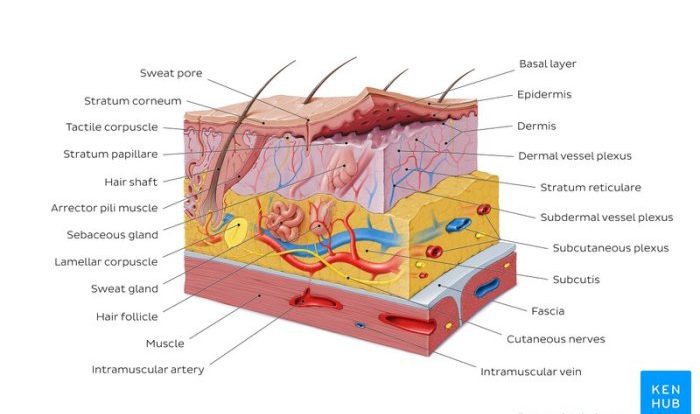Edward ip suffered from serious kidney disease – Edward IP’s life took a significant turn when he was diagnosed with a serious kidney ailment. This narrative delves into the complexities of his condition, exploring its origins, progression, and impact on his overall well-being.
Edward’s journey with kidney disease serves as a poignant reminder of the challenges faced by individuals grappling with chronic illnesses. His story highlights the importance of early detection, proactive management, and the resilience required to navigate the complexities of a life-altering condition.
Medical History

Edward IP was diagnosed with chronic kidney disease (CKD) at the age of 45. The onset of his kidney disease was gradual, with no apparent symptoms in the early stages. As the disease progressed, he began to experience fatigue, decreased appetite, and swelling in his feet and ankles.
These symptoms prompted him to seek medical attention, where he was diagnosed with CKD stage 3.
The potential causes of Edward IP’s kidney disease are multifactorial. He had a family history of kidney disease, which increased his risk of developing the condition. Additionally, he had a history of high blood pressure and diabetes, which are both known risk factors for CKD.
It is likely that the combination of these factors contributed to the development and progression of his kidney disease.
CKD can have a significant impact on overall health and well-being. As the kidneys become less able to filter waste products from the blood, toxins can accumulate in the body, leading to a variety of health problems. In Edward IP’s case, his CKD led to anemia, electrolyte imbalances, and fluid retention.
These complications further compromised his health and quality of life.
Treatment Options: Edward Ip Suffered From Serious Kidney Disease

There are various treatment options available for CKD, depending on the severity of the condition. For Edward IP, conservative management was initially recommended, which included lifestyle modifications such as dietary changes, fluid restriction, and blood pressure control. However, as his CKD progressed, he required more intensive treatment.
Medications can be used to treat CKD by reducing blood pressure, controlling blood sugar levels, and managing fluid retention. Edward IP was prescribed antihypertensive medications to lower his blood pressure and diuretics to reduce fluid buildup. These medications helped to slow the progression of his CKD and improve his overall health.
Dialysis is a life-sustaining treatment option for patients with end-stage renal disease (ESRD), which is the most severe stage of CKD. Dialysis involves filtering waste products and excess fluid from the blood using a machine. Edward IP underwent hemodialysis, which is a type of dialysis that uses a dialyzer to remove waste products from the blood.
Hemodialysis is typically performed three times per week for several hours each session.
Dialysis Procedures

Hemodialysis is a complex procedure that requires specialized equipment and trained medical personnel. The process involves creating an access point to the bloodstream, usually through a fistula or graft in the arm. Blood is then pumped out of the body and passed through a dialyzer, which filters out waste products and excess fluid.
The filtered blood is then returned to the body.
Peritoneal dialysis is another type of dialysis that uses the lining of the abdomen (peritoneum) as a filter. A catheter is inserted into the peritoneal cavity, and a dialysis solution is introduced. The dialysis solution absorbs waste products and excess fluid from the blood, which is then drained out of the abdomen.
The frequency and duration of dialysis treatments depend on the individual patient’s needs. Edward IP underwent hemodialysis three times per week for four hours each session. The dialysis treatments were effective in removing waste products and excess fluid from his blood, which improved his overall health and well-being.
Impact on Lifestyle
Kidney disease and dialysis treatments can have a significant impact on a patient’s lifestyle. Edward IP had to adhere to a strict dietary regimen, which included limiting his intake of sodium, potassium, and phosphorus. He also had to restrict his fluid intake to prevent fluid overload.
These dietary restrictions can be challenging to follow, especially when eating out or socializing.
Dialysis treatments can also be physically and emotionally demanding. Edward IP experienced fatigue, muscle cramps, and nausea during and after his dialysis sessions. He also had to schedule his dialysis treatments around his work and personal life, which could be disruptive and limiting.
Despite the challenges, Edward IP remained positive and determined to manage his condition. He joined a support group for kidney disease patients, where he could connect with others who understood his experiences. He also made lifestyle changes, such as exercising regularly and getting enough sleep, to improve his overall health and well-being.
Prognosis and Outlook

The prognosis for patients with CKD depends on the severity of the condition and the patient’s overall health. Edward IP’s CKD was diagnosed at a relatively early stage, which gave him a better prognosis. With proper treatment and lifestyle modifications, he was able to slow the progression of his disease and maintain a good quality of life.
However, CKD is a progressive disease, and there is a risk that it will eventually progress to ESRD. If ESRD occurs, Edward IP will require ongoing dialysis or a kidney transplant to survive. The availability of dialysis and transplant services can vary depending on the location and resources available.
Edward IP’s medical team will continue to monitor his condition and provide him with the necessary support and resources to manage his CKD. With ongoing treatment and a positive attitude, he can continue to live a fulfilling and meaningful life.
FAQ Summary
What are the common causes of kidney disease?
Kidney disease can result from various factors, including diabetes, high blood pressure, autoimmune disorders, and genetic conditions.
What are the symptoms of kidney disease?
Early stages of kidney disease may not present noticeable symptoms. As the condition progresses, individuals may experience fatigue, swelling in the hands and feet, frequent urination, and changes in urine output.
What is the treatment for kidney disease?
Treatment options for kidney disease depend on the severity of the condition. Conservative management, medications, dialysis, and kidney transplantation are common approaches.
